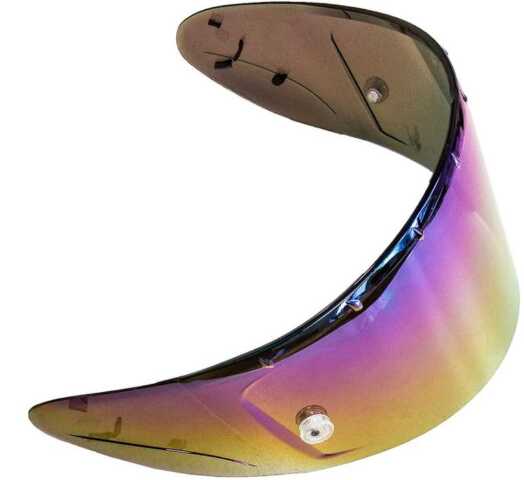Introduction

Iridium helmet visors, also known as iridium-coated visors, have gained popularity among motorcyclists, pilots, and other helmet-wearing professionals. These specialized visors offer unique advantages in terms of optical performance, aesthetics, and safety. In this comprehensive guide, we will delve into the science behind iridium visors, their benefits, and their applications.
What is an Iridium Helmet Visor?
An iridium helmet visor is a type of face shield or protective eyewear designed for use with helmets. Unlike traditional clear visors, iridium visors feature a thin coating of iridium oxide (IrO2) on their surface. Iridium is a rare and precious metal known for its remarkable optical properties.
Optical Properties of Iridium
- High Reflectivity: Iridium-coated surfaces exhibit high reflectivity across a broad spectrum of wavelengths. This property makes iridium visors effective at reducing glare from sunlight, headlights, and other bright light sources. As a result, riders and pilots experience improved visibility, especially in challenging lighting conditions.
- Color Enhancement: Iridium-coated visors enhance color perception. The iridium layer selectively reflects certain wavelengths, intensifying specific colors. This effect is particularly beneficial for pilots who need to distinguish between different signals and markers during flight.
- Anti-Scratch and Durability: Iridium coatings provide excellent scratch resistance. The hard surface protects against minor abrasions, ensuring long-lasting clarity and optical performance.
Benefits of Iridium Helmet Visors
- Reduced Glare: Iridium visors significantly reduce glare from sunlight, oncoming headlights, and reflective surfaces. This feature enhances safety by preventing temporary blindness and allowing riders and pilots to maintain focus.
- Enhanced Contrast: The selective reflection of iridium-coated visors enhances contrast, making objects more distinct. Whether navigating through traffic or flying in changing weather conditions, improved contrast aids decision-making.
- UV Protection: Iridium coatings offer UV protection, shielding the wearer’s eyes from harmful ultraviolet rays. Prolonged exposure to UV radiation can cause eye fatigue and damage, so this feature is crucial for long rides or flights.
- Aesthetics: Iridium visors have a sleek and futuristic appearance. The metallic sheen adds a touch of sophistication to any helmet, making it a popular choice among style-conscious riders.
Applications
- Motorcycling: Iridium visors are commonly used by motorcyclists. Whether cruising on highways or tackling twisty roads, riders benefit from reduced glare and improved visibility.
- Aviation: Pilots rely on iridium visors during flight. The enhanced contrast helps spot runway lights, navigation beacons, and other critical markers. Additionally, the UV protection ensures eye comfort during long hours in the cockpit.
- Racing: Professional racers appreciate the performance advantages of iridium visors. Clear vision, reduced glare, and color enhancement contribute to better lap times and safety on the track.
Safety Note:
- Avoid Night Use: Iridium visors, including clear ones, are not suitable for nighttime riding. Their reflective properties can make the view darker, posing risks in low-light conditions.
Maintenance Tips
- Cleaning: Use a soft microfiber cloth to clean the iridium visor. Avoid abrasive materials that could scratch the coating.
- Storage: Store the helmet in a cool, dry place away from direct sunlight. UV exposure over time may degrade the iridium coating.
- Replacement: If the visor becomes heavily scratched or damaged, consider replacing it. A compromised coating may reduce its optical benefits.
Conclusion
Iridium helmet visors combine science, aesthetics, and safety. Whether you’re a motorcyclist, pilot, or racing enthusiast, consider upgrading to an iridium-coated visor for an unparalleled visual experience. Remember, clear vision is not just a luxury—it’s a necessity for your safety on the road or in the sky.
